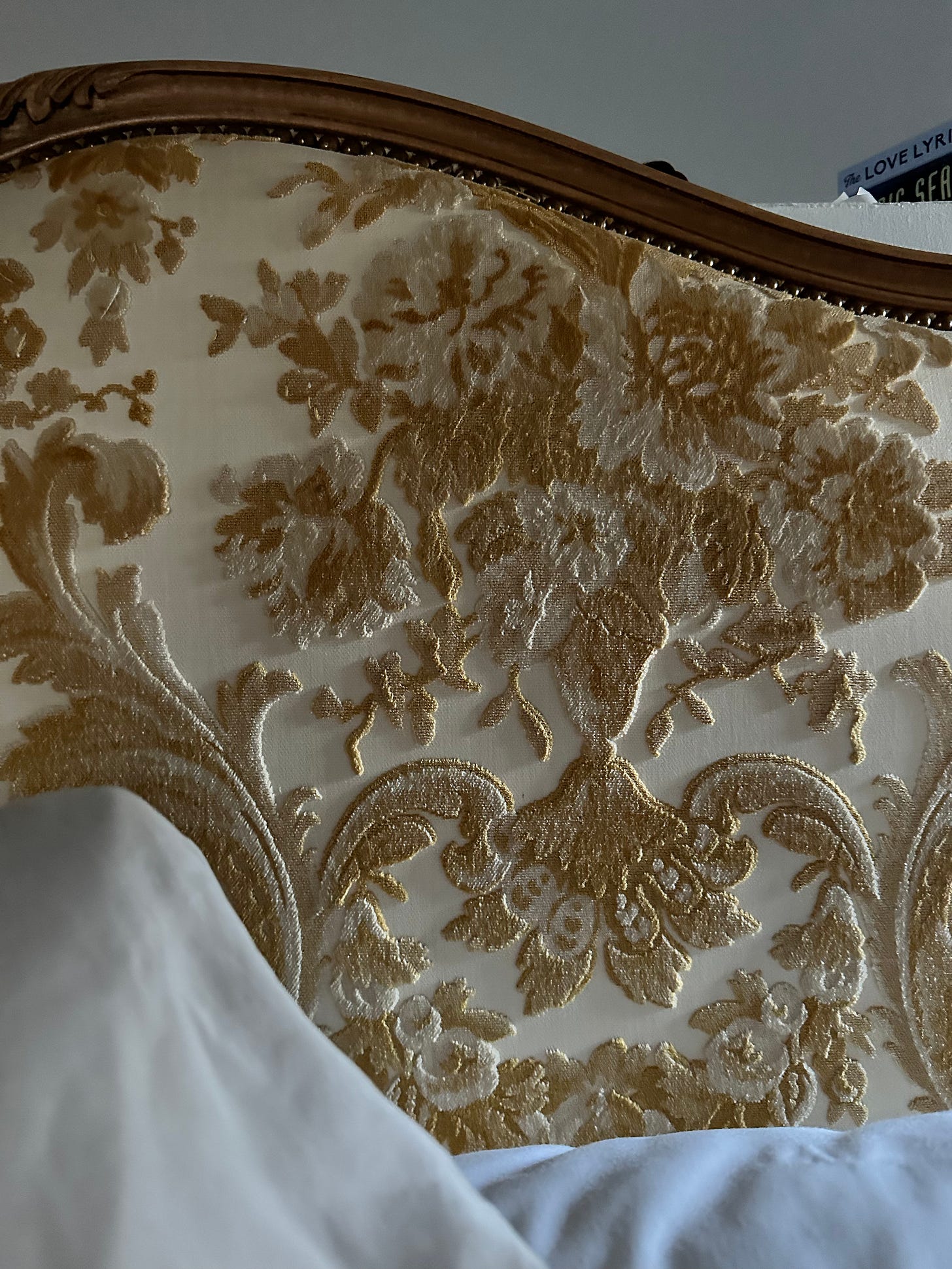On the first night in France, I fall into an old mattress with a noticeable slant — but no so noticeable as to be unbearable — dressed in bedding as white and bright and clean as toothpaste fresh from the tube. There is a generous, yet reasonable number of pillows on the bed: 3.
I sleep from nearly 11P to nearly 2A when my bladder insists I heft my body out of bed and stumble-walk down the stairs to the bathroom where I pee so powerfully and for so long I cannot even blame my body for insisting this was more important than my sleep. Besides, minutes after returning to bed, I was out again until morning.
I had been anticipating this. After battling a body that’s insisted on waking me at 3A and 4A and 5A for months for no other reason than it can, I finally made an appointment with a sleep specialist.
It was a telehealth appointment and I meet with a doctor-in-training first. She asks me about my sleep issues and looks at my profile and has me stick out my tongue before popping off screen to grab the doctor.
I come from a legendary line of sleepers. I’ve always napped without issue. A person who can’t be a passenger in a car without immediately growing drowsy. I once fell into a deep sleep in a plastic lawn chair in the middle of an LA sex dungeon that no longer exists (a disgruntled employee burned it down (I was there tagging along on a friend’s class field trip (Obvs, not the same night it was set on fire!))). It used to be, no matter what time I went to bed, I’d wake up exactly eight hours later.
Then, at 30, my body shifted. Now, I typically wake up at 6:30A regardless of when I got to bed. So, I began going to bed at 10:30P. Alcohol also started messing with my sleep, so I gave up drinking.
I got a white noise machine and I have a spare that I pack for longer trips — thankful every time, there’s always snoring in the room next door or chatter in the hallway to block out.
But for months now, I’ve some times struggled to fall asleep and almost consistently been unable to stay asleep. I became convinced it was perimenopause related. Melatonin wasn’t working its magic. I was reaching the end of meditation app sessions I’d been listening to for years without ever staying awake long enough to complete. There were days that I felt stuck in a perpetual half-sleep state.
The doctor tells me it’s true that insomnia can be hormone related, but usually your body adjusts to its new status quo and your typical sleep routine resumes. But mine has persisted. She says, that something can happen and your body can get stuck in the cycle of insomnia. It could be a big life change or a traumatic event.
She asks me when my sleep issues began, I tell her October. Which reminds me OF THAT TIME I WAS TRAPPED ON A MOUNTAIN AFTER HURRICANE HELENE WITH A BIG GROUP OF PEOPLE AND WE ALL HAD TO BE RESCUED BY THE MILITARY VIA HELICOPTER, which happened to have happened in September. When I share this with the doctor, she feels fairly certain that yeah that’d do it.
I tell her on recent trips, I’ve slept deep and full without issue but within days of returning home, my sleep issues resumed. She tells me this is actually common, people sleeping better someplace that their brain doesn’t associate with their sleep issues.
France was still months off at that point, but it gave me a fistful of hope to hold onto during my sleepless nights, maybe in France I will sleep again…
It’s odd how trauma works. You can feel as if you’re completely over something. You’ve processed it emotionally. You no longer bring it up in conversation. Weeks will pass without it crossing your mind. There’s no lingering ramifications from the event hanging on in your life — you’ve been made whole in all ways.
And yet.
It remains like a fine silt I can’t ever brush away.
I just have to be patient with myself. Exercise good sleep hygiene. And plan trips so I can sleep in strange beds. (And also get tested for sleep apnea — Just to be safe, says the doctor.)





